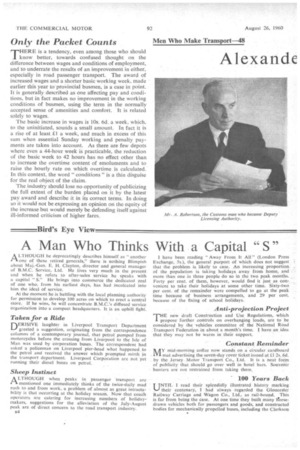Only the Packet Counts
Page 38

If you've noticed an error in this article please click here to report it so we can fix it.
THERE is a tendency, even among those who should know better, towards confused thought on the difference between wages and conditions of employment, and to underrate the results of an improvement in either, especially in road passenger transport. The award of increased wages and a shorter basic working week, made earlier this year to provincial busmen, is a case in point. It is generally described as one affecting pay and conditions, but in fact makes no improvement in the working conditions of busmen, using the term in the normally accepted sense of amenities and comfort. It is related solely to wages.
The basic increase in wages is 10s. 6d. a week, which, to the uninitiated, sounds a small amount. In fact it is a rise of at least £1 a week, and much in excess of this sum when essential Sunday working and penalty payments are taken into account. As there are few depots where even a 44-hour week is practicable, the reduction of the basic week to 42 hours has no effect other than to increase the overtime content of emoluments and to raise the hourly rate on which overtime is calculated. In this context. the word " conditions " is a thin disguise for the real object of the claim.
The industry should lose no opportunity of publicizing the full extent of the burden placed on it by the latest pay award and describe it in its correct terms. In doing so it would not be expressing an opinion on the equity of the increase but would merely be defending itself against ill-informed criticism of higher fares.




















































































































